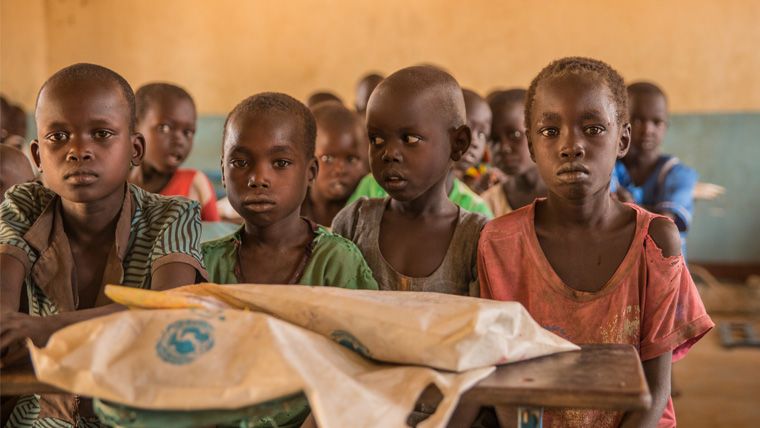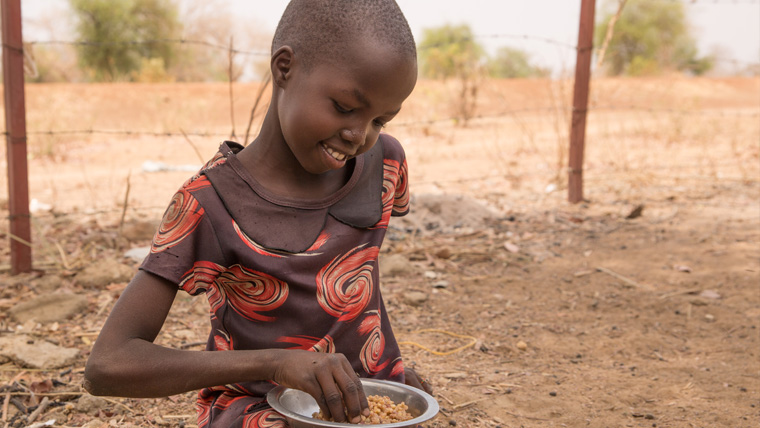Keeping children in school – and fed in South Sudan!
By Steph Glinski
Hundreds of children run towards the small school in the morning, laughing, chasing each other and making sure they are not late. Blue uniforms swirl around everywhere, mixed with other colours of clothes of those children, who can’t afford a uniform. The children are thin, but full of energy. Even if they didn’t have breakfast at home before, they know one thing: There will be lunch at school!
Over 800 children currently attend Rumathoi school, located in the Northern South Sudan and while they are quite during their first few classes, they get all the more excited about lunch break. There are no utensils and just a few bowls, but the meal distribution is regulated by class and well-organised. Each student, after washing their hands, receives a bowl of sorghum and beans and immediately starts eating quietly, fully focused on absorbing each grain.

“We don’t have food at home and I wake up hungry every morning. It’s difficult for me to do my homework, because I can’t focus,” says nine-year-old Thor. “I’m happy I’m getting a meal here, otherwise I wouldn’t have anything,” he adds, shoving another bite of lunch in his mouth. Thor, wearing a torn t-shirt and no shoes is too thin for his age, but his family has no means to provide for him. “My father left to work as a farmer, and I miss him very much. My mother doesn’t have a job,” he says.
World Vision makes sure children like Thor are fed here every week. “It helps keep them in school,” explains deputy headmaster Deng Mawien, who is just one of two teachers to get paid be the government. “In South Sudan, less than half of all children attend school and it’s a real problem. Some schools are still occupied by armed forces. But here in Rumathoi, World Vision helps us keep children in school. We teach them and they feed them,” he adds.
Just outside his office sits 10-year-old Elisabeth. She doesn’t wear a uniform, but she’s glad to be attending classes. “My parents have sold all of our livestock and recently also one of our houses,” she says. We use the money to buy food and we can’t afford anything else. It’s very expensive,” the grade four student explains. Her feet a bare, she too can’t afford shoes.

“As food insecurity in the country is growing, many families decided to move to a neighbouring country, so attendance has dropped in the past months. But we still have more children than we did before World Vision started the school meals here,” Deng says.
For Thor, his daily meal at school saves his life. “I’m not as hungry anymore and as soon as I eat, I can focus on my studies better," he says. What he doesn’t know is that there are 61,120 of children like him, benefitting from World Vision’s food programmes throughout the country – and keeping them in school!